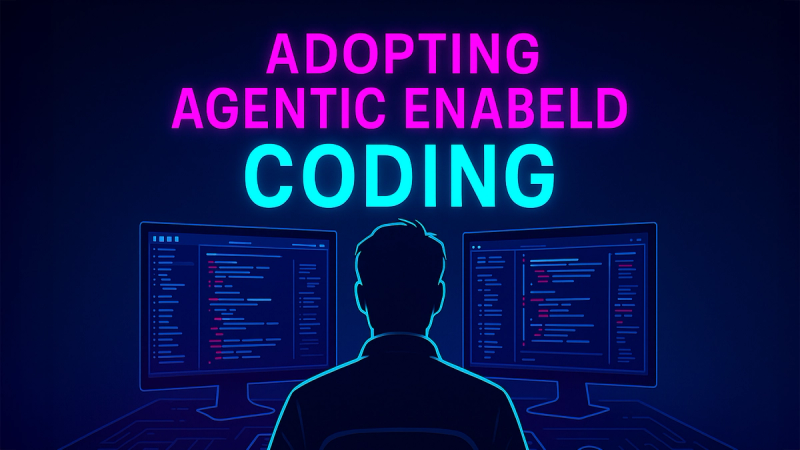How to Get Your Medium-Sized Enterprise to Adopt Agentic-Enabled Coding with IDEs like Windsurf and Cursor
This in-depth guide helps tech leaders in medium-sized enterprises adopt AI-powered IDEs like Windsurf and Cursor responsibly. It compares indemnity policies from top providers, outlines the impact of training data on IP exposure, and presents best practices to safeguard compliance while improving engineering excellence.

Brandon Wilburn
4 min read•June 16, 2025

The rise of AI-assisted development is more than hype—it's already reshaping software engineering. For medium-sized enterprises (MSEs), tools like Windsurf and Cursor IDE offer practical, high-leverage ways to scale engineering quality, improve developer experience, and automate burdensome workflows. But along with these opportunities come legitimate concerns about IP ownership, code provenance, legal indemnification, and security.
This article presents a comprehensive roadmap for MSEs seeking to adopt agentic-enabled IDEs, while navigating legal and compliance challenges with confidence. We cover practical implementation, legal indemnity rankings from key providers (OpenAI, Google, Anthropic, GitHub), IP risk exposure based on training data practices, and strong rebuttals to the most common fears around adopting AI in your engineering stack.
Why MSEs Should Invest in Agentic Development
Subscribe to TechieBrandon's blog to read the rest of "How to Get Your Medium-Sized Enterprise to Adopt Agentic-Enabled Coding with IDEs like Windsurf and Cursor" and get access to exclusive tech content.
What you'll get:
Tags
Affiliate Disclosure

About Brandon Wilburn
As a technology and business thought leader, Brandon Wilburn is currently the Chief Architect at Spirent Communications leading the Lifecycle Service Assurance business unit. He provides vision and drives the company's strategic initiates through customer and vendor engagements, value stream product deliveries, multi-national reorganization, cross-vertical engineering efficiencies, business development, and Innovation Lab creation.
Brandon works with CEOs, CTOs, GMs, R&D VPs, and other leaders to achieve successful business outcomes for multinational organizations in highly technical and challenging domains. He provides direct counsel to executives on markets, strategy, acquisitions, and execution.
With an effortless communication style that transcends engineering, technology, and marketing, Brandon is adept at engaging marquee customers, quickly building relationships, creating strategic alignment, and delivering customer value.
He has generated new multi-national R&D Innovation Lab organization from inception to scaled delivery, ultimately 70 resources strong with a 5mil annual budget, leveraging FTEs and consulting talent from United States, Canada, United Kingdom, Poland, Lithuania, Romania, Ukraine, Russia, and India all delivering new products together successfully. He directed and fostered the latest in best practices in organization structure, methodology, and engineering for products and platforms.
Brandon believes strongly in an organization's culture, organizing internal and external events such as Hackathons and Demo Days to support and propagate a positive the engineering community.